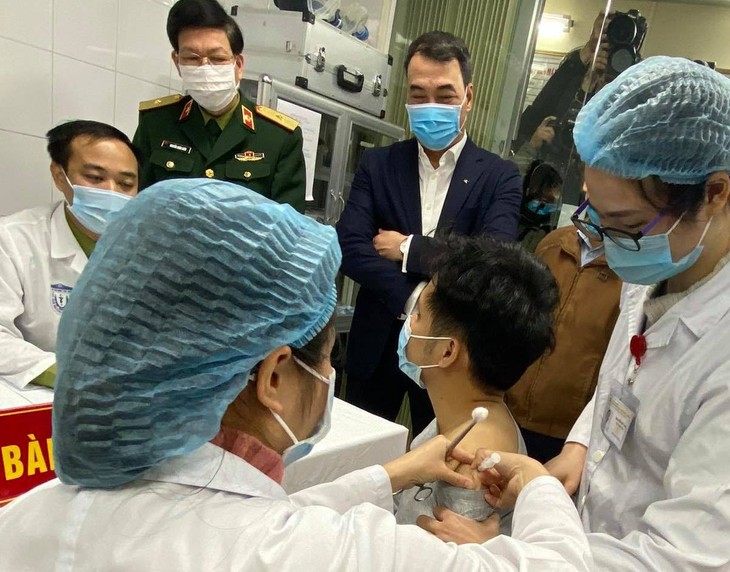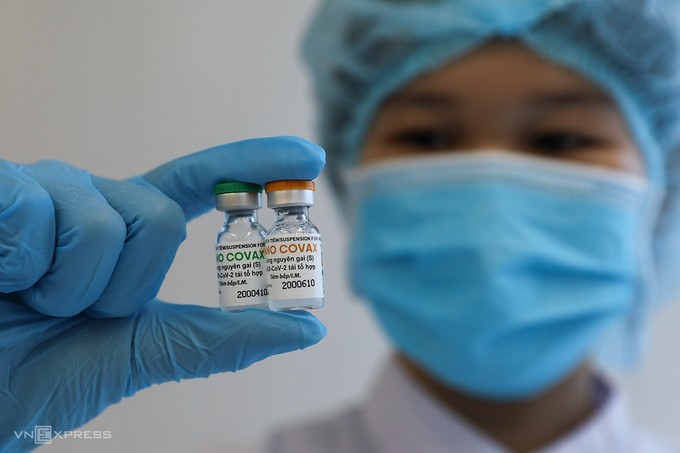(VOVWORLD) - Vietnam successfully made COVID-19 test kits to international standards last April. Now it is producing the first made-in-Vietnam vaccine against the coronavirus, which is in human trials on Vietnamese.
 Vietnam’s vaccine trial process is in line with international standards. (Photo: VGP/Hien Minh) Vietnam’s vaccine trial process is in line with international standards. (Photo: VGP/Hien Minh) |
Of the 200 volunteers in the first made-in-Vietnam COVID-19 vaccine clinical trial, 3 were given the first shot on December 17, marking a memorable milestone in the domestic health sector.
Normally it takes 7 to 12 years to turn out a vaccine but in emergency cases like the globally raging coronavirus, the research process can shorten a number of administrative steps.
Nguyen Ngo Quang, Deputy Head of the Health Ministry’s Administration of Science, Technology and Training, affirmed that Vietnam’s technology and professional process remains strictly in compliance with globally set regulations.
“To date, Vietnam has four vaccine manufacturers. One of them, Nanogen, is conducting the first clinical phase. The volunteers receiving the first injection are reported safe, a good signal to continue the 2nd injection to move towards phase 2,” said Quang.
 A Nanocovax vaccine sample at the lab in district 9, HCMC A Nanocovax vaccine sample at the lab in district 9, HCMC on December 8, 2020. (Photo: vnexpress.net)
|
The first phase of the clinical trial of the NanoCovax vaccine developed by Nanogen involved 60 volunteers who were divided into 3 groups. Each group of 20 received a different dose: 25mg, 50mg, and 75mg.
The result will be used to assess which dose is the safest to enter phase 2. The second phase will evaluate immunogenicity. The third phase requires an approval from the National Ethics Council for Biomedical Research before being carried out.
Volunteers were provided with all information about the study, including research objectives, the number of studies, and research evaluation requests. They must meet medical criteria including haematology and biochemistry, said Quang.
“The Ministry of Health and the research team ensure absolute safety for the COVID-19 trial participants through screening, testing, monitoring, and preventive measures for unexpected situations. In addition, the minimum benefit for the volunteers in regards of health checks, travel, accommodation, and other expenses will be in line with current regulations,” said Quang.
A vaccine is an important and effective tool to end an epidemic, but it is not the only one.
Health experts advise people to follow current epidemic prevention measures per the health sector’s guidance, especially recommendations featuring 5K (in Vietnamese) facemasks, disinfection, distance, no gathering, and health declaration.
Early detection, zoning, isolation, and traceability have proved effective measures, Quang said, adding, “A vaccine is only one measures to prevent or protect ourselves from the disease. All of us need to comply with the recommendations on the health sector’s epidemic prevention."